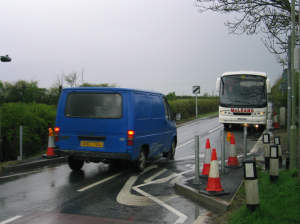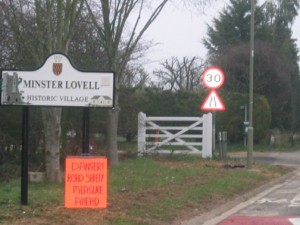Councils and the public sector are very careful about how they use language. This is no bad thing. It demonstrates an understanding that language is massively, foundationally important. The National Council of Teachers of English rightly says “language plays a central role in the way human beings behave and think.”
But language can be used to obscure as well as illuminate. For example, earlier this year on Radio 4’s Today programme, a Head of Social Services was discussing the problem of dementia patients in care homes forming ‘inappropriate’ relationships with other residents. In other words, of lonely, scared elderly people daring to fall in love. She talked with earnest concern of how one elderly lady was ‘supported to leave the room’ when their new partner walked in during a family visit. Translated, this meant she was bodily manhandled and frogmarched out against her will. Dolores Umbridge would be proud.
All this care with words makes the language local authorities use about the private car all the more remarkable. Or perhaps it simply shows what they really think of drivers and motorcyclists.
Let’s start with ‘traffic calming’.
Traffic calming
The term implies that traffic is so aggressive and beastlike that it requires constant ‘calming’. Councils spend millions on humps, bumps, chicanes, gateways and pinchpoints. Any motorcyclist who’s tried to negotiate the mess of overbanding mastic, poorly-maintained bumps and displaced gravel on a dark and wet February evening will not be calm. Drivers and riders are pushed, hooted and faced-off with oncoming traffic, made aggressive by artificial constraints. But in Councilland, this deliberately provoked and facilitated, full-on road user conflict is called ‘calming’.
Strangely, most traffic is a lot calmer without it.

Thumps
In some parts of the country, drivers and riders are faced with slippery, hard-edged, jarring thermoplastic humps. If you have a back condition, these can be agony to traverse at any speed. If you’re a motorcyclist riding in the rain at night, they’re as slippery as a slug and lethal.
To your local council, they’re ‘thumps‘. Yes, that council that does soooo much to avoid even the faintest trace of conflict and demonises ‘hostile’ language calls these ‘thumps’. But, maybe, they just think those evil, private car and motorcycle users deserve being hit up a bit.
Pinch points

Pinch points are designed to let just one vehicle through at a time. It’s clearly fine to ‘pinch’ drivers, rather as a spiteful schoolchild might pinch another when teacher isn’t looking. By forcing only one car through a gap at a time, councils promote conflict, anger and immense frustration at peak times. Giving those nasty drivers a quick nip when no-one’s looking is absolutely fine.
Village gateways
In ‘traffic management’ (there we go again – the implication that drivers can’t be left to use their own intelligence) terms, a ‘gateway’ is designed to protect a village and keep those nasty drivers out. The very antithesis of of the faux-equality and ‘inclusion’ espoused by council thinking. Gateways narrow the road so that vehicles are forced to cross into the opposite carriageway into direct conflict. Drivers and riders are forced into the path of oncoming traffic with the intention of reducing speeds.
Gateways also illustrate – beautifully – a complete lack of understanding of human nature. Of course everyone should play nicely, giving way, not rushing, not pushing and not being aggressive. But gateways encourage and promote the opposite behaviour as drivers insist on their rights of way by driving uncompromisingly straight and hard at oncoming traffic. Others try to sneak in the wake of a lead car in an attempt to get through.

Pedestrian refuges
See those poor, terrified pedestrians. See them cower in the face of the evil drivers. See them huddle, clutching each other on the isles of the pedestrian refuge. The language is absolutely clear – the car is evil and a threat from which defenceless pedestrians need protection.
Clearly, cars are not driven by normal people with children, families and hearts. They are driven by the sort of people from who society needs to seek refuge.
Severed roads
“Severed” is a pretty strong word. An unusual one too. The dictionary has it as “divide by cutting or slicing, especially suddenly and forcibly.” Powerful language from organisations that would describe the frogmarching of a pensioner from a room as ‘enabling her to leave’. Someone must have gone out of their way to choose such a deliberately aggressive term.
They’re described thus; “Severed roads… provide the ultimate deterrent to rat running.” And imagine a councillor or council employee describing any other group in society as ‘rats’. They’d be taken away for reprogramming faster than a final council tax demand.

Dragon’s Teeth
Another wonderfully hostile term describes white, spiked markings at the entrance to towns and villages. Dragon’s Teeth. Cornwall County Council’s website describes them thus: “Dragon’s teeth provide a visual change and narrowing of the road. They are suitable for village entry points. Cost £4,250 – 5,500.”
Designed to give those nasty, selfish drivers a visual nip, the language used is, again, clearly and openly hostile.
What does it all mean?
In the real world, this forensic persnicketiness about words doesn’t matter. Despite what the language police think, normal, everyday people use unintentionally loaded, prejudicial and caricaturing terms all the time and don’t mean a thing by it. But councils understand the power of words. They treat language very carefully and thoughtfully indeed with the white-gloved care one usually gives nitroglycerin.
To hear council employees talking about using ‘thumps’ and ‘pinchpoints’ against any other group in society would be unthinkable. Yet it’s not only acceptable but encouraged when directed against private motorised road users. When councils talk about ‘severed roads’, and ‘refuges’ they’re making their position and view clear.
Their language caricatures drivers and riders as an aggressive, unpleasant, animalistic subgroup. Certainly, in a minority of cases that’s a fair description. But the mass of normal drivers and riders are far more considerate; just decent and perfectly normal people going about their everyday business. But private cars and motorcycles has been so successfully demonised that it’s absolutely acceptable to ‘manage’, ‘restrict’ and ‘control’ their use.
There is no other group about which officials would use language like this. So perhaps its time to stop using it about drivers and motorcyclists. Either that, County Hall, or fess up and admit you simply don’t like us.